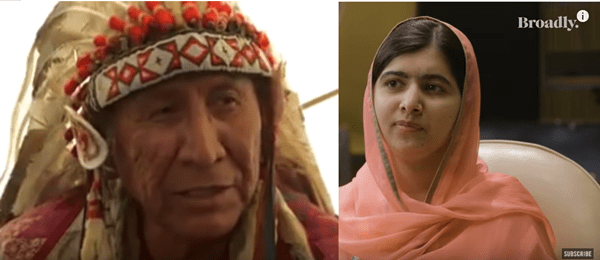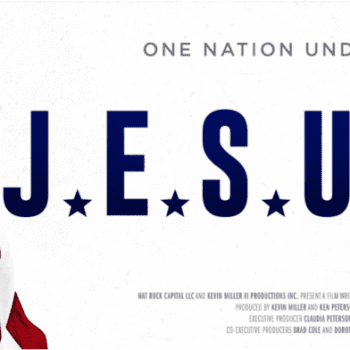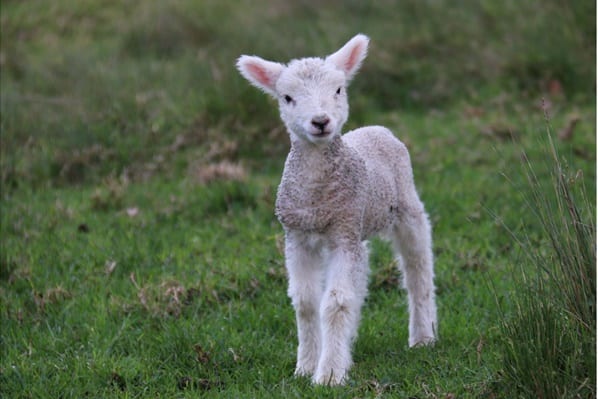 This past Monday, Indigenous People’s Day coincided with the 5th anniversary of the day Malala Yousafzai survived being shot in the face by a member of the Taliban. What do these seemingly disparate events have in common? They represent the power of truth to rise above cultures of myths and lies.
This past Monday, Indigenous People’s Day coincided with the 5th anniversary of the day Malala Yousafzai survived being shot in the face by a member of the Taliban. What do these seemingly disparate events have in common? They represent the power of truth to rise above cultures of myths and lies.
Indigenous People’s Day is, of course, a correction to what is still known in many parts of the country as Columbus Day. The transition from Columbus Day to Indigenous People’s Day is the exhuming of the truth from generations of burial. Likewise, Malala’s blessed survival is a victory over forces of death that tried to silence her – not just the men who pulled the trigger, but the hate, fear, and enmity that darkened their hearts and guided their hands.
The forces of hate, fear, and enmity are at work all over the world, crafting myths that bury their victims. The United States is built on that burial ground, and is turning nations around the world into the burial grounds of the victims of our weapons and wars. But remembering the indigenous people of our country as well as the peacemakers in the lands we attack, exposing the horrors of our violence to the light of truth, and recognizing the humanity of our victims — this is our hope of salvation. Thus on Monday, as I celebrated the lives of Malala and our nation’s first peoples, I considered the violence and lies that attempted to erase them, and the violence and lies that attempt to devour the whole human race.
The colonization of the United States which Columbus is credited for ushering in (though he himself never set foot on the contiguous 48) was an exercise in genocide. And Columbus’ own journals reveal the depths of his cruelty. He took pleasure and pride in rape, slave-trading, and murder. What always stops me in my tracks as I read it year after year, however, is his quote: “Let us in the name of the Holy Trinity go on sending all the slaves that can be sold.”
Sentences like that — taking pride in dehumanization and exploitation as hallmarks of faith — show how thoroughly violence can eclipse and become our God. If Columbus understood God to be Love at all, then love to him was violent and self-serving. Columbus worshipped conquest and might, and believed in a God who favored him and his men over and against others, to the point of horrific death.
Such belief in an exclusive God for us and against others, however, was hardly unique to Columbus. Over 500 years later and half a world away, we see the same mentality in the Taliban fighters who targeted Malala Yousafzai. It wasn’t just Malala they targeted, however. They were silencing women and all who disagreed with their particular understanding of Islam. Their understanding of Islam, in turn, was an identity formed over and against anything they considered “Western.” In attempting to prevent women and girls from obtaining an education, they were going against actual teachings of the Prophet Muhammad, who said, “Seeking knowledge is mandatory for every Muslim (male and female).” The parameters of their worship were defined not by God’s guidance, but by their own enmity.
But seeing the truth of the violence of Columbus or the Taliban is far easier than seeing the truth about the violence in ourselves. Whatever faith we may claim, if we put our trust in weapons to destroy our enemies, then we worship violence. If we put our faith in our own goodness over and above those we don’t know, those we reduce to stereotypes and prejudices that make it easier to ignore or kill, we put faith in dehumanization. While we lament the atrocities of Columbus and the birth of our nation in blood and slavery, we continue in the path of conquest over and against others. While we decry the brutality of the Taliban and ISIS, our bombs and drones kill increasing numbers of civilians and drive a cycle of perpetual war.
Even now, tribal lands are being exploited. The Dakota Access Pipeline has already desecrated Lakota land and oil has already leaked, though a judge has ruled to stop the flow of oil as additional environmental analyses are conducted. Investigations have found that the Bureau of Indian Affairs, rather than negotiating deals to the benefit of tribes, instead often make it easy and cost-efficient for corporations to exploit Native resources. And studies show that Native Americans are killed by the police at a higher rate than any other group. Exploitation and dehumanization, not only for Native Americans but for other people of color and religious minorities as well, is deep and systemic in US culture.
As for our violence overseas, our government, in the words of Dr. Martin Luther King Jr., remains the greatest purveyor of violence in the world today. Though Malala was attacked by the Taliban, it would be wrong to assume that the US’s fight against terrorism has helped women like her. In fact, hundreds of drone strikes, targeting mostly residences and killing thousands of people, are the biggest recruitment tool the Taliban and other terror groups have. Even as she has spoken out against the Taliban’s violence and patriarchy, Malala has also critiqued US drone strikes, even telling President Obama that “when they kill one bad person, innocent people are killed, too, and terrorism spreads more.” US militarism has left surviving family members of drone attacks desperate, devastated, and often desirous of revenge. And the more we wage war, the more those we harm will define themselves over and against us, deepening enmity between cultures and peoples as hatred overwhelms our souls. The cycle of violence blinds us to our common humanity even as it drowns our differences in a sea of enmity.
The truths of Indigenous People’s Day and Malala’s survival elude us if we remain blind to the victims of our own violence. Just as Columbus and the Taliban created myths glorifying their own power over those they perceived as weaker and inferior in the sight of their perception of God, our nation creates myths that deem people on our own shores and in countries overseas expendable. We bury the story of our victims under layers of American exceptionalism that mask the harm we cause.
Fortunately, we find the truth in the survivors of violence who refuse to be silenced. We find the truth in those who have freed themselves and seek to free us from the cycles of enmity. The Water Protectors at Standing Rock have made clear that they are struggling not only against the pipeline, but for clean water for all, including members of the corporations and police forces that have met them with violence. Malala expresses in her autobiography that she wants education for all, including members of the Taliban. Refusing to meet violence with violence, they teach us that we cannot go on defining ourselves against each other. We must recognize our stories are bound together.
What is truth? It is Love so strong that it uncovers the lives and stories of the victims of our violence that we wished to hide or ignore. It is Love so strong that it frees us from victimization and gives us a new foundation of living for rather than against one another. This is the truth we can begin to live into as we listen to the indigenous people of our nation and dedicate ourselves to reconciliation and reparations. It is the truth we can live into as we divest from our militarism and invest instead in education, as Malala has encouraged us. It is the truth that can set us free.
Image: Screenshots from Youtube, modified. “The Black snake prophecy, Stand #nodapl with Standing Rock,” by Anonymous TV and “Malala Yousafzai on Refugees, Advocacy, and the Girl Power Trip,” by Broadly.
Stay in the loop! Like Teaching Nonviolent Atonement on Facebook!











